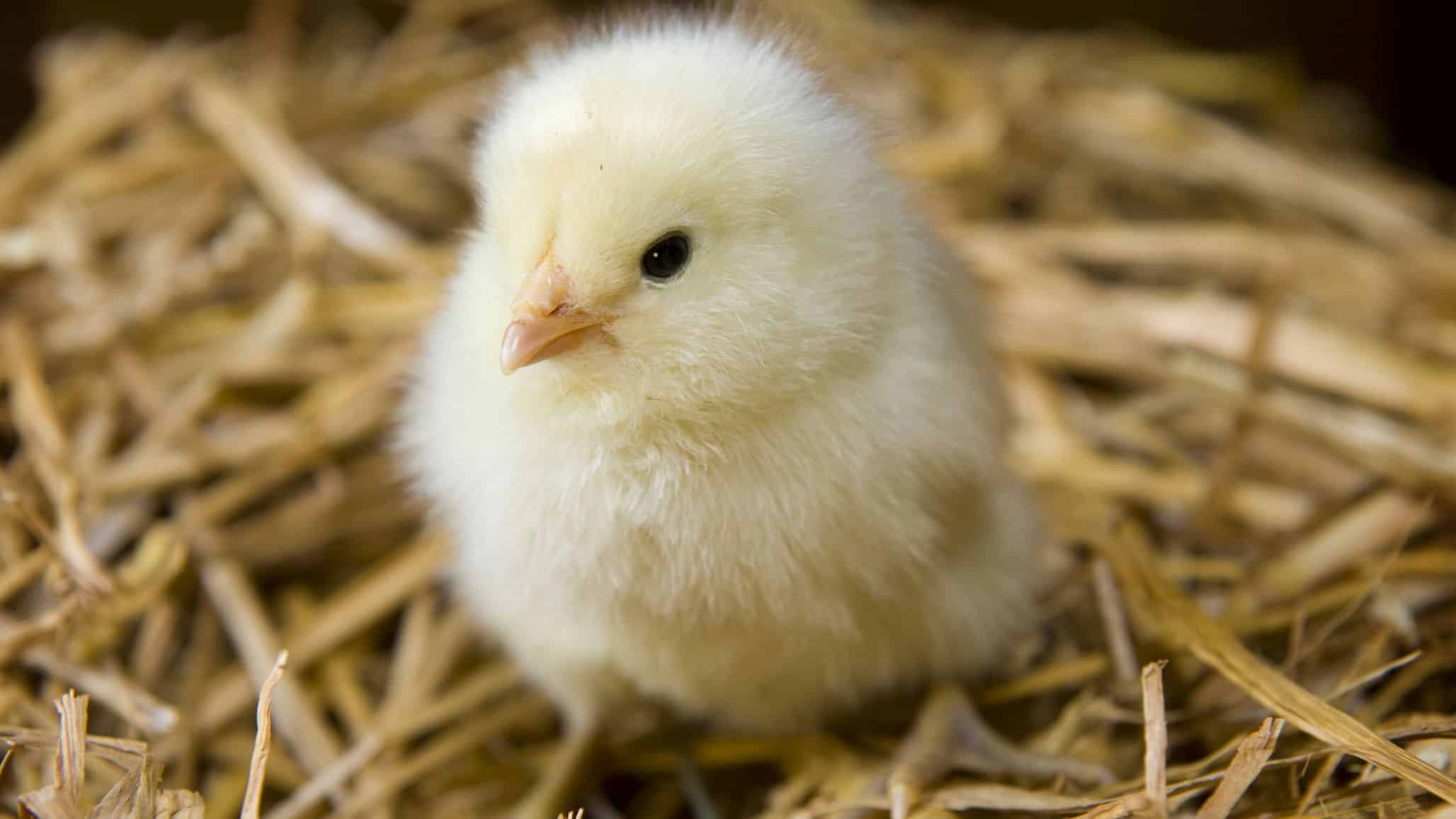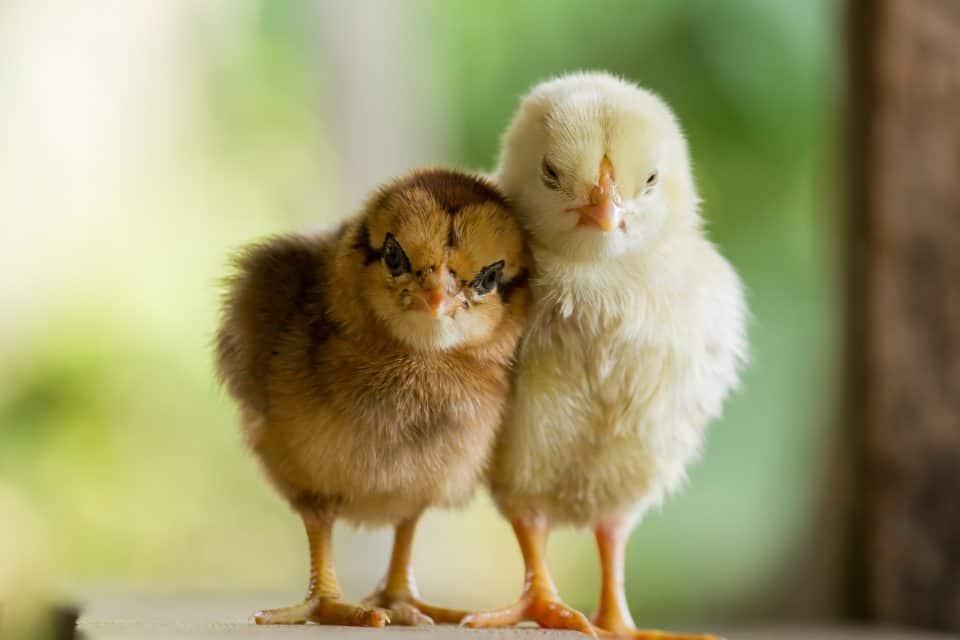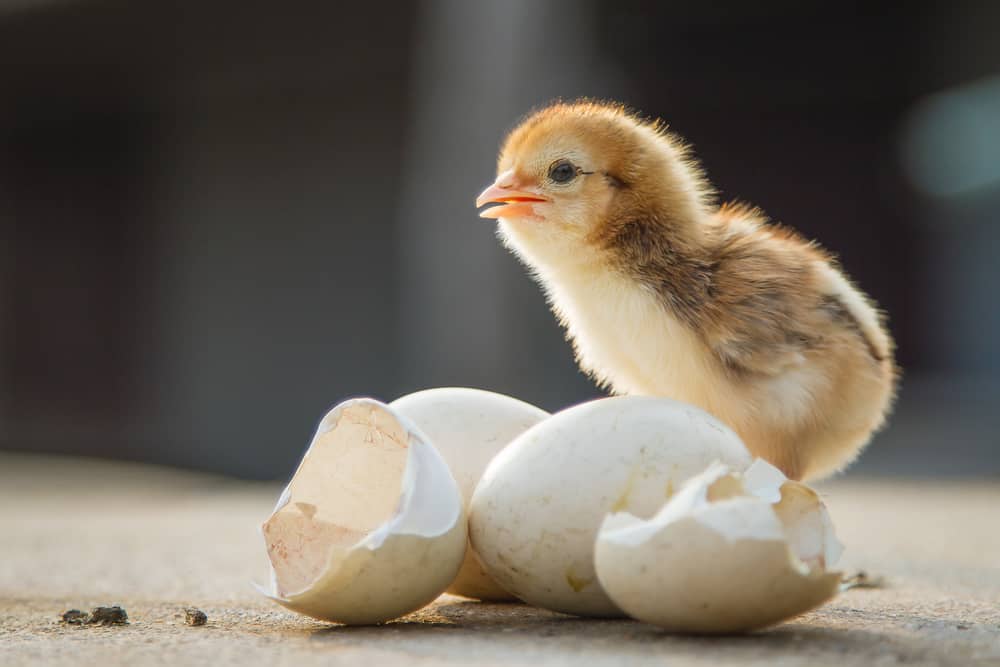Have you been thinking about becoming more self-sufficient and having your own backyard chickens? Keeping a flock of hens is becoming more popular, and it is one of the easiest ways to be more self-sufficient.
A fun way to start is to raise chickens from the egg. But to do that you need to know how to look after the eggs until they hatch. You also need to know what baby chicks eat so you can feed them right and help them grow into healthy chickens.
In this article, we will tell you how to look after the eggs successfully until they hatch and are ready to be transferred into a brooder. We will also tell you what you can and cannot feed your chicks. And since you will want to keep your chicks and hens safe from predators, we have included information about animals that prey on them as well.
How do you look after chicken eggs until they hatch?
The first thing you need to do is to set up an incubator. You can either buy one or make one yourself. DIY incubators tend to have a smaller success rate, but if you would like to know more about making your own incubator, read this post from Raising Happy Chickens.
When setting up the incubator, it is important to get the temperature and humidity right. The eggs should be kept at 37.5 °C (99.5°F) and the humidity for the first eighteen days needs to be 40-50%. After that, the humidity needs to increase to 65-75%.
Next, you need to find fertile eggs. It’s best to get the eggs from some as close to home as possible, so try to find a local grower. When you have located where to get them from, pick eggs that are clean, well-formed, and full-size. Handle the eggs with extreme care as sudden movements can damage the embryos.
Once you have collected your eggs, it’s time to incubate them. Make sure the heating and humidity are right in the incubator and place the eggs in the incubator. You must check the levels regularly to keep the environment right for hatching.
When using an incubator, you need to mimic the mother. A mother hen would turn the eggs, but in an incubator, you need to do this at least three times per day until day eighteen.
You might notice the eggs moving on their own when the eggs are ready to hatch. This is a sign of the fetus becoming active. The chicks will peck their way out of the eggs. Do not help them with this as you could cause injury. Leave the chicks in the incubator under the heat lamp to dry for 24-48 hours before moving them into a brooder.
You can find more detailed incubating instructions on the Modern Farmer website. For more support on how to move your chicks from the incubator to the brooder, we recommend this video from the Farm Mom.
What can you feed baby chicks?
When your chicks have hatched, it is important to give them the right food at the right time so they will grow into healthy chickens. In a moment, we will give you information about feeding at the different stages of a chick’s life, but first a list of things you can give them.
Apples
Feed your baby chicks apples to ensure they get fiber, potassium, and vitamin K. Before you give them the apples, chop them up and remove any seeds. This will make them easier for the chicks to digest.
Bananas
Another fruit you can feed your chicks is bananas. They are a good source of vitamin B6 and magnesium. However, you should not give them unripe bananas, as they are harder to digest.
Crickets
You can feed your chicks either live or freeze-dried crickets. Baby chicks can eat other bugs and insects as well, but crickets are especially great food for young chicks as they are high in protein and carbs.
Grass
Baby chicks might not show a lot of interest in grass, yet it’s a good idea to give it to them. Why? Because adult chickens will peck through the grass to find insects and eat small pieces of grass at the same time. Giving baby chicks grass will encourage foraging from a young age.
Green, leafy vegetables
Baby chicks can eat kale, turnip greens, chard, and lettuce. They can get folate, potassium, vitamin K, magnesium, and phosphorus from these vegetables. However, one leafy green you should avoid is iceberg lettuce. It can cause the chicks diarrhea and has very low nutritional value.
Oatmeal
You can feed baby chicks raw oats or warm oatmeal. Although oats already have lots of minerals and vitamins baby chicks need, you can mix them with seeds for extra nutrients. Wheat and barley are good, too.
Strawberries
Strawberries are among baby chicks’ favorite foods. They are packed full of goodness, including anti-inflammatory antioxidants, that help the chicks stay healthy. They also have iron, copper, and vitamin B, among many other vitamins and minerals.
Worms
Another food that baby chicks love to eat is worms. However, worms should be a special treat to young chicks, as too many can overwhelm their digestive system.
For a more extensive list of foods that baby chicks can eat, visit Heritage Acres Market. You can also download and print a handy PDF list for easy referral.

What should you feed baby chicks at different growth stages?
- Newborn: you don’t need to give the chicks any food or drink for the first 48 hours. They absorb the yolk of the egg before they break through the shell and this will sustain them during the first days after hatching.
- 0-8 weeks old: during this stage, the chicks grow fast and need a lot of vitamins and minerals to support their natural immunity and healthy bone growth. You can feed them foods from the above list or buy ready-prepared starter feed.
- 8-16 weeks old: after the first eight weeks, the chicks become pullets. They are like teenagers. They are no longer chicks, but not yet laying hens either. At this age, they need slightly less protein and calcium, but they still need all the essential nutrients to ensure continued healthy development.
How to make chick starter feed
To ensure that the chicks get all the important nutrients they need, some people like to buy commercial starter feed, which you can buy from feed stores. However, you can make it yourself with just two ingredients: eggs and oatmeal.
All you need to do is to take some hard-boiled eggs, mash them up and mix them with oatmeal.
What you should not feed baby chicks
Though baby chicks can eat most fruit and vegetables and even meat and chicken, there are some things that they cannot eat. Certain foods can make baby chicks sick and even kill them in extreme cases.
Foods that they cannot eat include:
- Avocados
- Chocolate
- Eggplant
- Moldy bread
- Onion
- Peanuts
- Pickles
- Rhubarb
You will find a more comprehensive list on the Heritage Acres Market we mentioned above with a link.
Nutrition baby chicks need to grow healthy
Baby chickens must receive all the essential nutrients to grow into healthy chickens. To support their bone growth and immune system, their diet needs to be packed with more nutrients than adult chickens’.
They need protein to build muscles and to promote strength and bone integrity. Protein should make up about 20% of their diet. When they become pullets, they will need less, about 15%.
The young chicks need a range of vitamins and minerals in their diet, too. These include A, D, E, and K vitamins. In addition, they also need biotin, folic acid, riboflavin, and thiamine. Minerals they should get include calcium, copper, iron, magnesium, and phosphorus.
It is important to give baby chicks grains such as corn and wheat, as they will provide the chicks with oil and protein, which is needed for energy. Finally, they also need fatty acids. These are important because they help the digestive system to break down minerals and vitamins.
As well as ensuring the chicks get enough to eat, you also need to ensure they get enough water. Baby chicks, as well as adult chickens, drink almost three times their weight in water every day.

What are the predators of baby chicks?
Unfortunately, baby chicks have many predators, so it is important to keep them safe. The list of predators depends on where you live, but these are the most common predators.
- Bears
- Birds of prey such as hawks, owls, and eagles
- Cats, both domestic and wild cats such as cougars, bobcats, and mountain lions
- Coyotes
- Foxes
- Minks
- Possums
- Raccoons
- Skunks
- Stray dogs
- Weasels
Read more about how to prevent these predators from getting your chicks here.
Conclusion
We hope our article has given you a good starting point and encouraged you to grow your own chickens. The trickiest part is to get them to hatch safely, but then it gets easier as long as you feed your baby chicks the right foods they need for nutrients.
If you have further questions about baby chicks, either about feeding them or hatching them, write your questions in the comments section.
